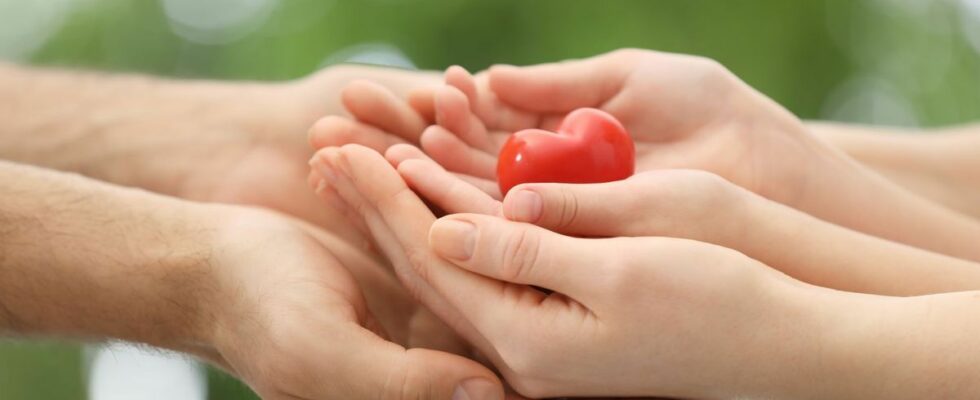Published on
Updated
Reading 3 min.
The Biomedicine Agency still makes the same observation: organ donation remains insufficient in France. How can we explain why some people take this step? Doctissimo collected the testimony of Florence Bouté who donated the organs of her daughter, Alice, who died suddenly at the age of 16.
Every year, June 22 is the National Day of Reflection on Organ Donation. This year again, the Biomedicine Agency is calling for the expansion of organ donation in France. Indeed, according to François Kerbaul, director of organ and tissue harvesting and transplantation at the Agency, there is “15 organ transplants23 new people registered on the waiting list, and two to three deaths due to lack of grafts“every day in France.
80% of French people say they are in favor of organ donation
As a reminder, there is a national register of refusals, which makes it possible to formalize one’s position on organ donation. If you do not register on this file, you are presumed to be a donor.. But very often, loved ones do not make the decision to donate the organs of their deceased, if they did not express it clearly during their lifetime.
This leads to a paradoxical situation where 80% of French people say they are in favor of donating, but ultimately only a minority actually ends up doing it. It is currently estimated that 1000 people die each year due to lack of available grafts.
Florence Bouté and her husband donated the organs of their daughter, Alice
Very often, there are still many preconceived ideas circulating about organ donation. “It is one of the obstacles which perhaps also explains the reluctance which persists: it is confused with the donation of the body to science. believes Florence Bouté, mother of Alice, a 16-year-old girl who died in October 2018. Florence Bouté and her partner chose to donate their daughter’s organs, in order to “give meaning to her death”. She tells her story in a testimonial book, “Le don d’Alice”, published by City Editions.
From horse riding accident… to organ donation
Shortly after her birth, doctors diagnosed Alice with a brain tumor. Treated, the little girl is doing better but retains various disabilities. “Alice was dyscalculic, dyspraxicdysorthographic… To help her, I enrolled her in the pony, so that she learns to compensate for her disorders” explains Florence Bouté.
Very quickly, the young girl, like her mother, became passionate about the equestrian world. “Alice wanted to become a groom, a job which involves providing daily care to horses. She therefore opted for a CAP and found a boss to complete her apprenticeship.”
This is where the drama occurs. “It was at her workplace that she was hit in the head by a hoof. A dramatic accident, which made no sense, but which killed her.” adds his mother. Alice is immediately taken into care at Necker hospital, which has her medical records. She will be operated on quickly but five days after this operation, the doctors explain to Florence and her partner that the young girl will no longer wake up. “We had discussed with my husband the possibility of Alice’s death and the question of donating her organs. We agreed, just like his brothers and sister” further relates Florence Bouté.
The girl’s kidneys, liver, pancreas, heart and lungs were removed, saving six lives. “The collection teams are fantastic. We are taken care of from start to finish, taking care to involve us every step of the way. When the samples were taken, they brought Alice back to her room, clean, hair done, dressed, she smelled good… We did not suspect that her organs had been removed.
Why did you make this choice?
For Florence Bouté, donating her daughter’s organs made it possible to give meaning to her death. “In organ donation, we do not talk about death but about life. Because if we are confronted with this question, it is because the worst has happened. To move forward, we must talk about life, lives who will be saved thanks to donations” recalls Florence Bouté.
Before concluding wisely: “I take no glory or pride in having made this gesture and that did not prevent me from mourning my daughter in a serene manner. What is difficult is to lose a loved one, not to make a donation of his organs.
